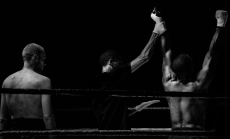The CPD Blog is intended to stimulate dialog among scholars and practitioners from around the world in the public diplomacy sphere. The opinions represented here are the authors' own and do not necessarily reflect CPD's views. For blogger guidelines, click here.
The New York Times published an interview with the United States Undersecretary for Public Diplomacy, Karen Hughes, on August 28, 2007. The interview was conducted by Robert McMahon of the Council on Foreign Relations and can be found here.
After decades of violence, the opium poppy crop remains one of the few stable income sources for poor Afghan farmers, who cannot be effectively persuaded to end poppy cultivation without being granted alternative ways of making a living. In 2005, most farmers complied with the poppy ban set out by the Afghan government with the understanding that legal alternative means of survival would be provided. But when the promised aid failed to materialize, drug production quickly rose again.
In 2006 the modestly budgeted Disney Channel film High School Musical unexpectedly became a world-wide smash hit, with some 200 million mostly 9-14 year old “tweener” female viewers spread across some 100 countries. Just last week Disney rolled out the blockbuster sequel, “High School Musical Two,” in the US and kicked off a global marketing campaign with a 24-hour series of conference calls with Disney partners in, once again, over 100 countries.
Since September 11th much of our nation's public diplomacy efforts have been focused, appropriately enough, on the Middle East and the Islamic world. However, while much energy and attention has gone to improve understanding of America and its policies in those regions another important sphere has been neglected. The Russian government is now clearly conducting a concerted effort to indoctrinate its people, particularly its young people, in anti-Americanism. America is hardly the Kremlin's only target. Indeed, the list is a long one -- Georgia, Ukraine, Estonia, Britain, etc.
As the new Chairman of the Broadcasting Board of Governors, James K. Glassman is the U.S. government's number one broadcaster. An accomplished journalist, Mr. Glassman oversees all U.S. government non-military international broadcast channels. The BBG Chairman provided his unvarnished observations to Worldcasting this week.

A look at the U.S. State Department's ECA initiatives during Karen Hughes' tenure.
On July 19th Avaaz.org and Chatham House hosted Britain's new Foreign Secretary, David Miliband as he gave his first speech on "A New Diplomacy." Mr. Miliband is one of the youngest ministers in Britain's history. He is the first to keep a blog, and he has an avatar in Second Life.
There’s a new “bee” character on a Hamas TV children's show that encourages viewers to be martyrs.
Nahoul the bee wants kids to follow him into “martyrdom” along with his Mickey Mouse look-alike “cousin” Farfur, who was beaten to death by an “Israeli” in a previous episode, reports BBC monitoring.
Pages
Visit CPD's Online Library
Explore CPD's vast online database featuring the latest books, articles, speeches and information on international organizations dedicated to public diplomacy.
POPULAR ARTICLES
-
January 29
-
January 20
-
January 28
-
February 6
-
January 8
Featured Blogger
Join the Conversation
Interested in contributing to the CPD Blog? We welcome your posts. Read our guidelines and find out how you can submit blogs and photo essays >.








